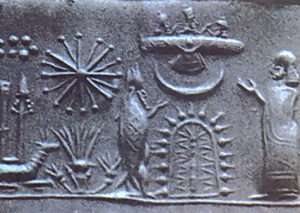The Kingdom of Aksum, an ancient civilization that flourished in the Horn of Africa, represents one of the great historical epochs in African and world history. Located in present-day Eritrea and northern Ethiopia, Aksum emerged as a formidable kingdom, leaving a lasting legacy in the region and beyond.
Historical Emergence and Geographic Significance
The Aksumite Kingdom’s roots can be traced back to the 1st century CE, reaching its zenith between the 3rd and 6th centuries. Its strategic position near key trade routes, notably the Red Sea and the Nile River, played a crucial role in its rise to prominence. This location made Aksum a pivotal commercial hub, connecting Africa to the Middle East and the Indian subcontinent.
Economic and Cultural Flourishing
Aksum’s ascent as a powerful kingdom was largely driven by its command over lucrative trade networks. It was a center for the exchange of various commodities, including gold, ivory, and frankincense. The kingdom’s economic sophistication was further evidenced by the introduction of its own currency, a testament to its advanced economic system.

Culturally, Aksum was a melting pot of ideas and beliefs. While initially adhering to indigenous religions, it underwent a significant religious transformation with the adoption of Christianity as the state religion in the 4th century. This made Aksum one of the earliest kingdoms to embrace Christianity, profoundly shaping its cultural and political landscape.
Architectural and Artistic Contributions
The kingdom is famed for its architectural achievements, particularly its monumental stelae or obelisks. These towering stone structures, used as markers for underground tombs, exhibit the architectural ingenuity of the Aksumites. The most famous among these, the Obelisk of Axum, is a marvel of ancient engineering.
In addition to these structures, Aksum left behind a rich trove of inscriptions and coins. These artifacts provide invaluable insights into the kingdom’s history, rulers, and societal dynamics, offering a window into the life and times of this ancient civilization.
The ancient Kingdom of Aksum, located in what is now Eritrea and northern Ethiopia, is shrouded in legends and myths that intertwine its historical significance with tales of mystique and wonder. Among these are the captivating stories of the Queen of Sheba and the Ark of the Covenant, narratives that have imprinted Aksum with a profound mythical status.
Aksum and the Queen of Sheba
The Kingdom of Aksum is often celebrated as the birthplace of the enigmatic Queen of Sheba, a figure revered in biblical, Quranic, and Ethiopian lore. Her story, particularly her famed visit to King Solomon in Jerusalem, is a tapestry of intrigue and wisdom, woven into the historical and religious narratives of various cultures. In Ethiopian tradition, the Queen of Sheba is not just a historical figure; she embodies the essence of wisdom, wealth, and governance, and her connection to Aksum serves to elevate the historical importance of the kingdom in the annals of ancient civilizations.
Perhaps even more enthralling is Aksum’s connection to the Ark of the Covenant, a sacred artifact central to biblical history. Ethiopian legend narrates a fascinating tale where the Ark, which is believed to hold the stone tablets of the Ten Commandments, was brought to Ethiopia by Menelik I. Menelik, reputedly the son of the Queen of Sheba and King Solomon, is said to have taken the Ark from Jerusalem to Aksum, marking a pivotal moment in Ethiopian history. This act is often interpreted as a symbol of divine providence and a foundational narrative for the Ethiopian Orthodox Church.
In contemporary times, the Church of St. Mary of Zion in Aksum is believed to be the custodian of the Ark of the Covenant. This belief bestows upon the church a revered status, making it a site of pilgrimage and veneration. The presence of the Ark in Aksum is more than a religious symbol; it represents a deep, spiritual connection to the ancient roots of Ethiopian Christianity and its enduring legacy.
The Decline and Its Enduring Legacy
The decline of the Aksumite Kingdom began around the 7th century, influenced by a multitude of factors including environmental changes, shifting trade routes, and the rise of Islamic caliphates which challenged its economic dominance. Despite its gradual decline, the kingdom’s cultural and historical impacts were profound. Aksum is often viewed as a forerunner to later Ethiopian civilization, and its legacy continues to resonate in the region, embodying a source of pride and identity.
The Kingdom of Aksum stands as a remarkable chapter in the annals of ancient civilizations. It exemplifies the heights of African historical and cultural achievements, characterized by its economic might, religious transformations, and architectural innovations. Even as the kingdom itself faded, its legacy endured, continuing to inform and inspire the cultural and historical narratives of Africa and the world.


















